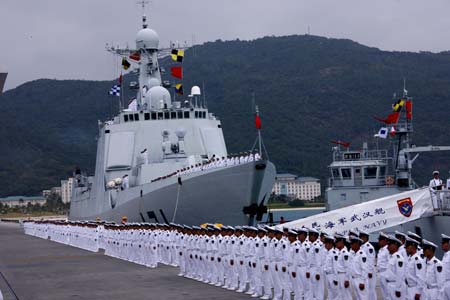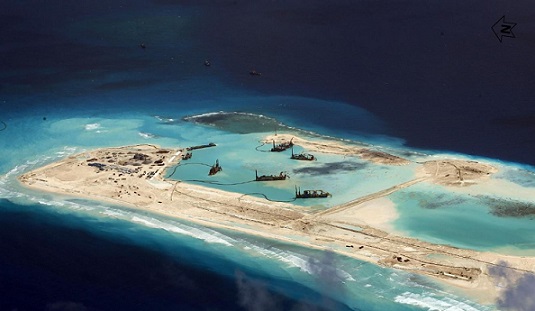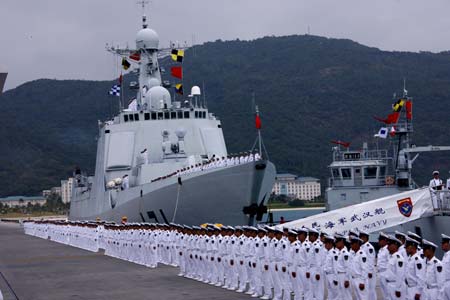
By ELLEN T.TORDESILLAS
DESPITE the fact that relations between China and the Philippines are bad, Chinese officials said “war is never an option” for China in resolving the territorial conflict in the South China Sea.
It is not in China’s interest to have an unstable South China Sea, said Tang Qi Fang of China Institute of International Studies based Beijing.
In a talk with members of Philippine media invited by China’s Foreign Ministry to mark the 40th year of diplomatic relations between the Philippines and China, Tang said if armed confrontation breaks out in the South China Sea, the loser will not be the Unites States. Not even the Philippines.
“It’s China,” Tang said adding that it’s because they have a lot of activities in the area .
All officials we talked with said the South China Sea (SCS) dispute is not the be-all and end-all of Philippine-China relations.
An official said they adhere to the policy laid down by the late Deng Xiaoping to “shelve differences and instead engage in joint development.”
The relations between the two countries are currently strained over territorial dispute in Scarborough shoal (also known as Panatag shoal and Bajo de Masinloc. The Chinese call it Huangyan island) near Zambales and Spratlys in Palawan.
The Philippines has questioned China’s nine-dashed line map before the United Nations Arbitral Tribunal with China refusing to participate in the suit.
The issue has worsened with China’s reclamation around reefs and shoals they occupy in SCS. They are constructing what United States officials say are military facilities. China says the installations also are also for civilian use including their fishermen.

An article by Zhu Feng, executive director of the Collaborative Innovation Center for South China Sea Studies based in Nanjing University, published in the May/June 2015 issue of China International Studies, titled “Will Islands and Reef Construction change the status quo in South China Sea, “ presents China’s position on the controversial Island and Reef constructions (IRC).
The article went beyond the IRC issue and related the tension in the South China Sea to the power shift in the Asia-Pacific region since the mid -1990s.
Zhu said: “With the rapid economic growth of China, China’s naval forces underwent considerable growth. This not only caused a tremendous concern on the part of the United States over whether its sea and air hegemony in the Asia-Pacific region would be challenged and eclipsed, but also caused many Asia Pacific countries to hedge their bets on China and the United States at the same time.”
Zhu noted that “Since 2010, Washington’s focus on Chinese military power has been gradually shifting to the growth of the Chinese navy. It was at that time that the Sino-U.S. dispute over SCS began to turn hot. However, focusing on a federal deficit cut and economic revival at home, the Obama administration proposed a plan in 2012 to cut U.S. military spending by $500 billion in the 10 years that followed. Weakening U.S. military presence in the Asia-Pacific, the cut was a great pinch to the Pentagon which always pitched for American dominance in Asia-Pacific sea power struggles.”
“Against this background, how to ‘deter’ China on the high seas became an increasingly pressing challenge for the United States,” Zhu said.
Zhu further said the U.S. , Japan and other countries are coercing China into suspending and terminating its IRCs.
“Countries like the Philippines and Vietnam refuse to stop their trouble making either,” he said adding that the two countries continue to “defame” China while drawing the U.S. and Japan into deeper involvement in the SCS.
Zhu singled out the Aquino government for having “staged many shows of being ‘suppressed’ by China.”
A Chinese official noted that the Aquino government is on its last nine months. “We are expecting the end of the darkest phase of our relationship.”
They declined to comment on the possible Philippine presidential candidates saying they do not interfere with internal matters of another country.
